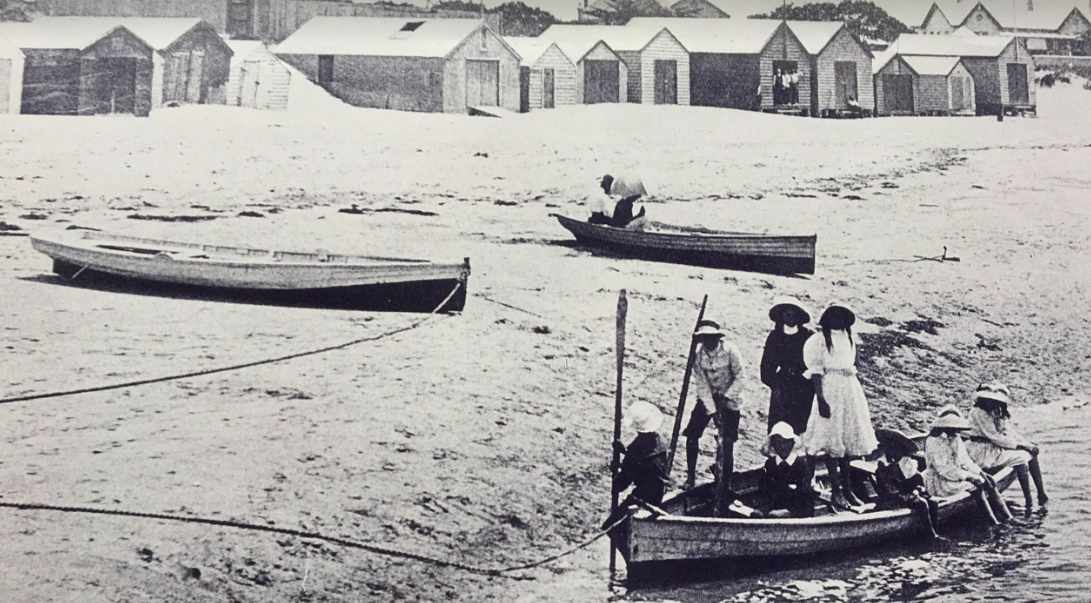
Conditions might have been bleak in recent weeks but summer’s not far off and the annual onslaught of holiday-makers looking to escape Melbourne will soon be scattered the length and breadth of the Bellarine Peninsula and Surf Coast.
Been an institutional pilgrimage pretty much since the Gold Rush roaring days when people pining for more salubrious climes than stinking Melbourne took to steamers and paddleboats to clear out of the putrid place.
Hydrotherapy was another big lure. The old Shortland Bluff, for one, was a highly-considered sanitorium, as attested by its journal, the Queenscliff Sentinel:
“The competition of rival watering places becomes each season keener, and if Queenscliff is to retain its pride of place as the favourite summer resort of Victoria, its inhabitants must exert themselves.”
So it wasn’t all beer and skittles and beachballs, the colonial tourism caper. The seaside was serious business. Sick stuff. And disease and pestilence were never far away. Diptheria, consumption, scarlet fever, typhoid and plenty more were common.
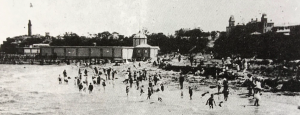
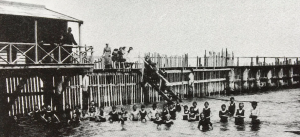
Not all that unlike our Covid and flu problems today, except mortality was shared by many more far younger people. And life expectancy a century and a half ago wasn’t anywhere near what it is today.
Getting out of Dodge might not have really been a cure but it was a welcome respite from the anxieties of daily urban life.
Would-be escapees were spoiled for choice, too, with seaside destinations such as Geelong, Torquay, Barwon Heads, Clifton Springs, Ocean Grove and Queenscliff offering seabaths, beaches, rockpools, open water, spas, promenades, boat rides, picturesque surroundings, coffee places and, critically, fresh air and sunshine.
Not that your average Victorian prude was actually all that exposed to the elements. Parasols and crinolines, suits and derbys, smocks and wide-brimmed straw hats saw to that. Not great for swimming, either.
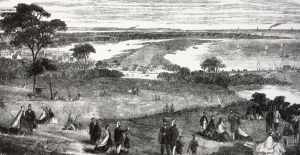
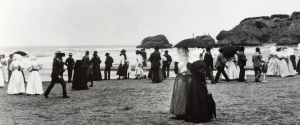
The advent of neck-to-knee kept the puritans in a cheerful, fearful high dudgeon. Beach regulations as late as the 1920s demanded such curiosities as:
- No person shall dress or undress or remove any part of his bathing costume in any place open to the public view.
- Every person about to bathe shall proceed from the dressing place direct to the river or sea by the nearest practicable line.
- Except when rendering aid in case of accident, no person shall, in bathing costume, walk, run, exercise, stand, loiter, lie down, or sit down, upon any part of the beach.
- The dressing enclosure or shed shall be used for dressing and undressing only. No person shall play games or loiter therein.
- No person shall behave in an unseemly, improper, riotous, or noisy manner.
- No person shall blaspheme or use profane language or behave in an indecent manner.
- No male over 12 years shall trespass on the beach, or any dressing shed reserved for the use of females. No female over 12 years shall trespass on the beach of dressing shed reserved for males – except to render assistance in case of accident.
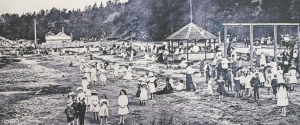
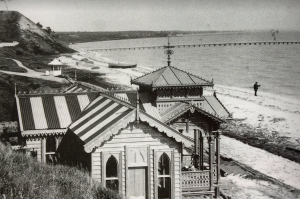
Pretty grim way of having fun. Wouldn’t stack up today, of course. The champions of public morality would be sent into brimstone conniptions at what they’d meet on the beach these days.
Mind you, there’s no shortage of beach zealots still about with all today’s designated nude beaches, non-optional clothing beaches, dog beaches, no-dog beaches and no smoking, no fires, no parking, no sleeping in your car regulations …
That’s beach etiquette for you – there’s always something to be outraged about.
This article appeared in the Geelong Advertiser 7 November 2022


